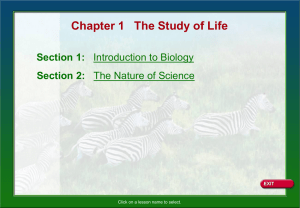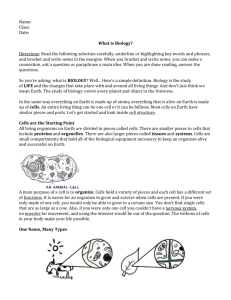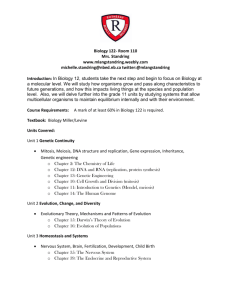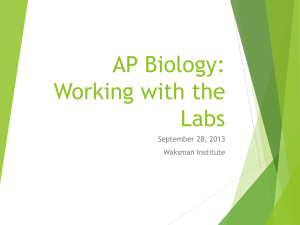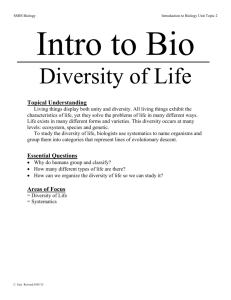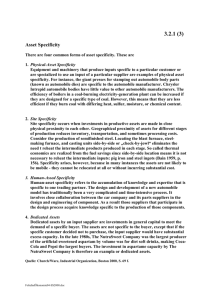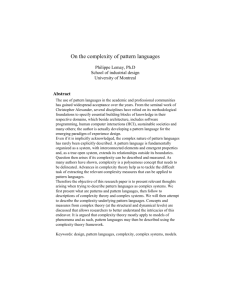Causal foundations of biological information
advertisement
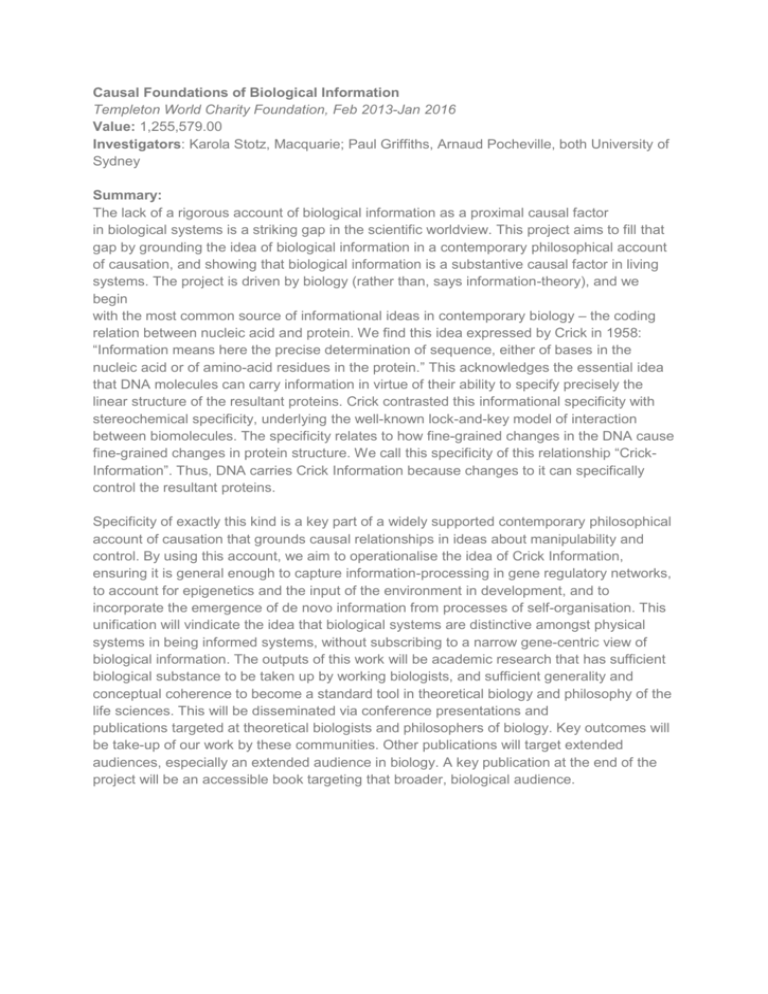
Causal Foundations of Biological Information Templeton World Charity Foundation, Feb 2013-Jan 2016 Value: 1,255,579.00 Investigators: Karola Stotz, Macquarie; Paul Griffiths, Arnaud Pocheville, both University of Sydney Summary: The lack of a rigorous account of biological information as a proximal causal factor in biological systems is a striking gap in the scientific worldview. This project aims to fill that gap by grounding the idea of biological information in a contemporary philosophical account of causation, and showing that biological information is a substantive causal factor in living systems. The project is driven by biology (rather than, says information-theory), and we begin with the most common source of informational ideas in contemporary biology – the coding relation between nucleic acid and protein. We find this idea expressed by Crick in 1958: “Information means here the precise determination of sequence, either of bases in the nucleic acid or of amino-acid residues in the protein.” This acknowledges the essential idea that DNA molecules can carry information in virtue of their ability to specify precisely the linear structure of the resultant proteins. Crick contrasted this informational specificity with stereochemical specificity, underlying the well-known lock-and-key model of interaction between biomolecules. The specificity relates to how fine-grained changes in the DNA cause fine-grained changes in protein structure. We call this specificity of this relationship “CrickInformation”. Thus, DNA carries Crick Information because changes to it can specifically control the resultant proteins. Specificity of exactly this kind is a key part of a widely supported contemporary philosophical account of causation that grounds causal relationships in ideas about manipulability and control. By using this account, we aim to operationalise the idea of Crick Information, ensuring it is general enough to capture information-processing in gene regulatory networks, to account for epigenetics and the input of the environment in development, and to incorporate the emergence of de novo information from processes of self-organisation. This unification will vindicate the idea that biological systems are distinctive amongst physical systems in being informed systems, without subscribing to a narrow gene-centric view of biological information. The outputs of this work will be academic research that has sufficient biological substance to be taken up by working biologists, and sufficient generality and conceptual coherence to become a standard tool in theoretical biology and philosophy of the life sciences. This will be disseminated via conference presentations and publications targeted at theoretical biologists and philosophers of biology. Key outcomes will be take-up of our work by these communities. Other publications will target extended audiences, especially an extended audience in biology. A key publication at the end of the project will be an accessible book targeting that broader, biological audience.




